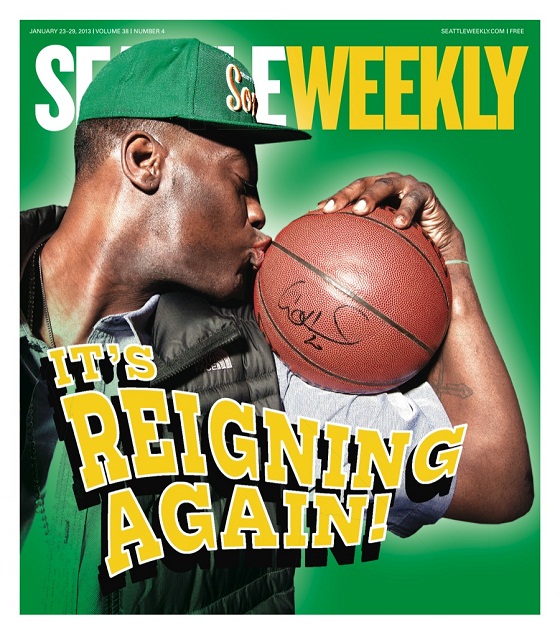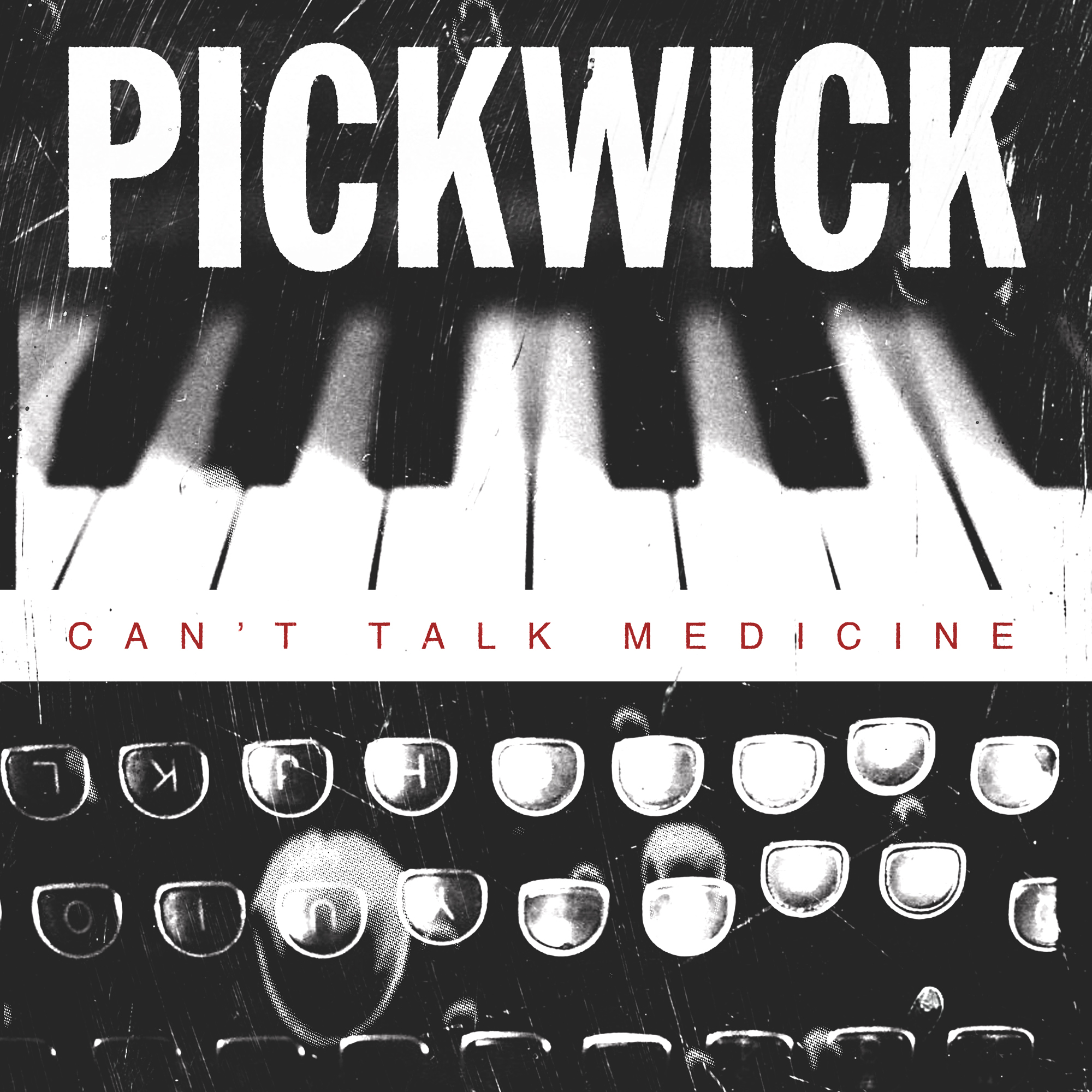Halfway through the second song of The Head and the Heart’s set at The Cedar in Minneapolis, Jonathan Russell smashed his Martin guitar to pieces and walked offstage into a crowd of blood-stained half-humans.
It was Zombie pub-crawl night, and Russell, the band’s co-frontman, spent the rest of the evening being cussed at by people in zombie suits because he wasn’t in uniform.
“I was convinced I was going to fly home,” Russell says, “[thinking] ‘I don’t give a shit. This is no longer the idea that I thought this was going to be. I’m over it.’ “
It was October 2011, more than a year into the promotion of the band’s self-titled debut, and The Head and the Heart was working harder than Scott Perlewitz, Sub Pop Records’ head of commercial radio, had ever seen a band work.
“They would literally drive around in a van, do a radio stop, play a couple songs for the radio station, nail it every time, be charming, and then go do soundcheck, meet some more people, maybe do some publicity stuff, do a kick-ass show every night, and then get in a van and drive,” says Perlewitz, who worked the early careers of Michael Bublé and Powerman 5000, among others, at Warner Brothers’ Reprise imprint before joining the independent Seattle label. “They work their asses off at a level, and with a kind of response, that the people who saw it came back with their friends. And that’s their story.”
Part of it, anyway. Before The Head and the Heart signed to Sub Pop in December 2010, their debut had already sold upward of 8,000 copies— which would be considered profitable for some Sub Pop releases. Today, with the label behind them, that record has sold more than 203,000 units, according to Nielsen SoundScan. In the age of iTunes, Spotify, and comedian Louis C.K. selling a million dollars’ worth of downloads directly to his fans in a matter of days, conventional wisdom is that record labels and other media middlemen have become anachronistic. But the 195,000 records Sub Pop helped The Head and the Heart sell presents an interesting argument for why labels still work—and why the one that broke grunge is thriving on the eve of its 25th anniversary, which it celebrates next year.
The Head and the Heart formed in 2009, after Russell moved to Seattle from Virginia. His plan from the start was to form a band and get signed to Sub Pop. He’d attended high school with drummer Tyler Williams, but had never met Josiah Johnson (vocals, guitar, percussion), Charity Rose Thielen (vocals, violin), Chris Zasche (bass), or Kenny Hensley (piano) until The Head and the Heart started coming into shape.
The band didn’t hit Sub Pop’s radar until a year later, after their record had already started to sell. They were opening big shows for acts like Vampire Weekend, and major labels started throwing “shit-tons of money at us,” according to Russell. Stuart Meyer, THATH’s A&R rep at Sub Pop, admits that the label was late to the party. Ali Hedrick, the band’s booking agent, was pestering owner and co-founder Jonathan Poneman to listen to the record.
It’s been said that since the road is where bands make most of their money these days, it’s more important to have a booking agent than a label. Hedrick disagrees, which is why she pitched the band to several labels. “It takes a village,” she says. “I want people spending money on marketing. I want somebody getting the record out to college radio and setting up interviews for them. Why wouldn’t you go with a record label who is going to invest in your business? If I was a band, I would never turn down a deal like Sub Pop. It’s great branding for the band. It’s a great association.”
Steve Manley, owner of B-Side Records in Madison, Wis., says that being on a label doesn’t have the same cachet with his customers that it once did, but that even now the Sub Pop imprint feels like a seal of approval. “If Sub Pop finds a worthy band to sign,” he says, “I think there’s usually something to that.”
Even when Sub Pop started calling, the independent success of The Head and the Heart made the band question not only whether they should sign to an indie or a major label, but whether they needed a deal at all.
Facebook has made it easy for bands to connect with fans; Bandcamp allows any artist with an mp3 to share—or sell—their songs directly with listeners; and remarkably high-quality records can be made using Apple’s GarageBand recording software for a fraction of the price of renting a studio. All these conveniences have made it easier for bands to make records and reach an audience without the infrastructure and financial backing of a label.
Some artists, such as Seattle rapper Mack-lemore, have remained fiercely independent, continuing to tour and record on their own. Others, such as Portland singer/songwriter Laura Veirs, have left their record labels and struck out on their own. For the release of 2010’s July Flame, Veirs cut ties with her longtime label, Nonesuch; created her own label; and hired people to fulfill the management, publicity, and marketing roles that are a label’s bread and butter. The result: July Flame sold more copies than her last Nonesuch release, Saltbreakers.
Independence makes sense for Veirs for the same reason it does for Louis C.K.: Their audiences were built on the support of a financial backer. Louis C.K. had cable TV (FX); Veirs had a record label. “They gave me international ads and ads in The New Yorker,” she says, “and press that I don’t think I would have gotten otherwise. Now that I have an existing audience, it’s much better for me to have my own label.”
Megan Jasper, Sub Pop’s vice president, says the label goes though a series of conversations before offering a band a deal. In addition to aesthetic considerations, Sub Pop wants to make sure the parties’ business philosophies and personalities are the right fit. With The Head and the Heart, Jasper says, the primary question was whether the label could build on the momentum the band had built on its own. “The thing that was clear, especially when you saw them play live, is that there was great potential there,” Jasper says. “And when you’re in that place, no matter what it is—whether it’s Fleet Foxes, whether it’s fucking grunge—you never know when you’re in the beginning or in the thick of it; you only know that there’s something and it’s wanting to move forward. And that’s what we sensed with them, and I think they sensed it themselves.”
Ultimately, The Head and the Heart decided their talents lay in writing and performing, and wanted to give the tasks of marketing and planning to people who knew better. Sub Pop was the right fit because the label seemed big enough—and competent enough, as demonstrated through their recent work with Fleet Foxes, Iron & Wine, and Band of Horses—to see the potential in their debut album. The expectations in the deal were also modest enough that they wouldn’t have to compromise to sell the number of records that would have been necessary to keep a major-label suitor happy. Russell says they would have made a lot more money up front if they’d signed to a major label, but they would have been tied to the agreement for many years and records. The Sub Pop deal, for only two records, gave them less up front but came with some pluses, like ownership over the rights to the master recordings of The Head and the Heart—a wonky line item that could pay large dividends over the years and decades.
As the band readies to embark on its final tour in support of its debut, all parties are looking back at unqualified success. The band’s first single, “Lost in My Mind,” was a hit on adult-contemporary radio; they’ve played Conan twice; and The Head and the Heart is one of the 10 best-selling debuts in Sub Pop’s history. Not bad when you consider that Jasper sees the first album of a two-record deal mainly as a strong foundation for the second.
“It’s about building,” Jasper says, “It’s about developing. It’s about educating people and getting the music out and getting the word out and seeing what kind of groundwork you can create. And [with] the second record, you can truly build on all of that.”
Russell didn’t quit the band that night in Minneapolis. He got onstage the next night and played the show, even though, he says, “it was awkward as hell.” But he does miss that guitar. They all do.
“That was the guitar that we got to replace the $100 guitar that you had,” Johnson says, “because we knew that we were going to go on tour for a long time.”
Russell’s new guitar is OK. It’s not broken-in like his old one was, and it’s not as fancy as someone who’s sold 200,000 records can afford. But a cherry axe isn’t high on his list of priorities right now.
“It’s pretty awesome to know that come [my mom’s] retirement,” he says, “I know for a fact that I’ll be able to buy her a house.”








